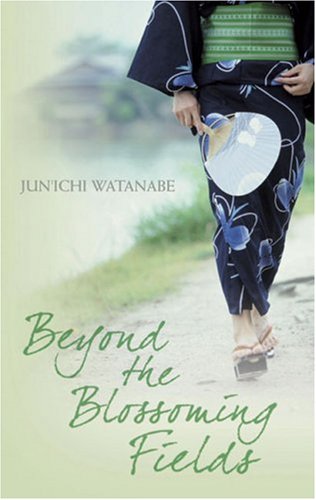Beyond the Blossoming Fields
Set in Japan from 1851 to 1913, this novel illuminates the life of Ginko Ogino, the first woman doctor in that country. Married in her late teens to the son of a wealthy neighboring family, Ginko contracts gonorrhea from her husband, whom she divorces. Suffering humiliation and pain at the hands of male gynecologists, Ginko determines to become a doctor for women. Her family finds this unacceptable within Ginko’s social class, and she leaves her family, finding her parents’ values at odds with her own.
Determined to gain an education, she pursues her goals as she struggles in school for many years. She enters a medical school where she is the only woman, and she must endure ridicule and abuse in order to succeed. Brilliant, she establishes her own clinic in Tokyo, becoming a renowned mentor to aspiring women doctors, and a strong figure in the Japanese Christian Women’s Organization. Despite suffering chronic symptoms of gonorrhea, she becomes famous—from far and near the Japanese public seeks her out for her leadership in medical and political causes. She remarries Yokiyoshi Shikata, a Protestant minister and eventually follows him to the northern island of Hokkaido to build a utopian Christian settlement.
Reading more like a biography than a work of fiction, this detailed novel, eye-opening in its descriptions of the sacrifices independent women endured, will interest those curious about woman’s issues in Japan in the late 1800s. Western audiences will gain respect for Ginko, who refused to be limited by her time and place in history.










